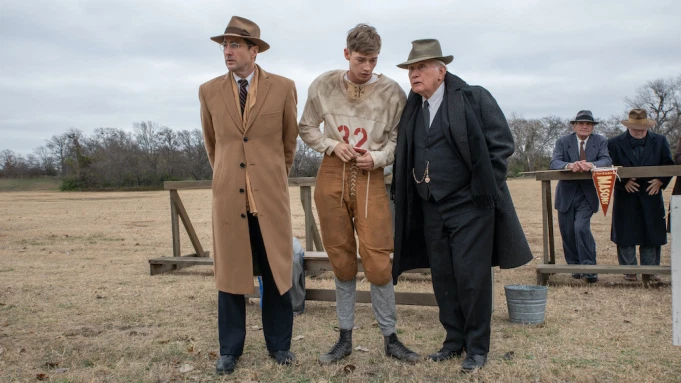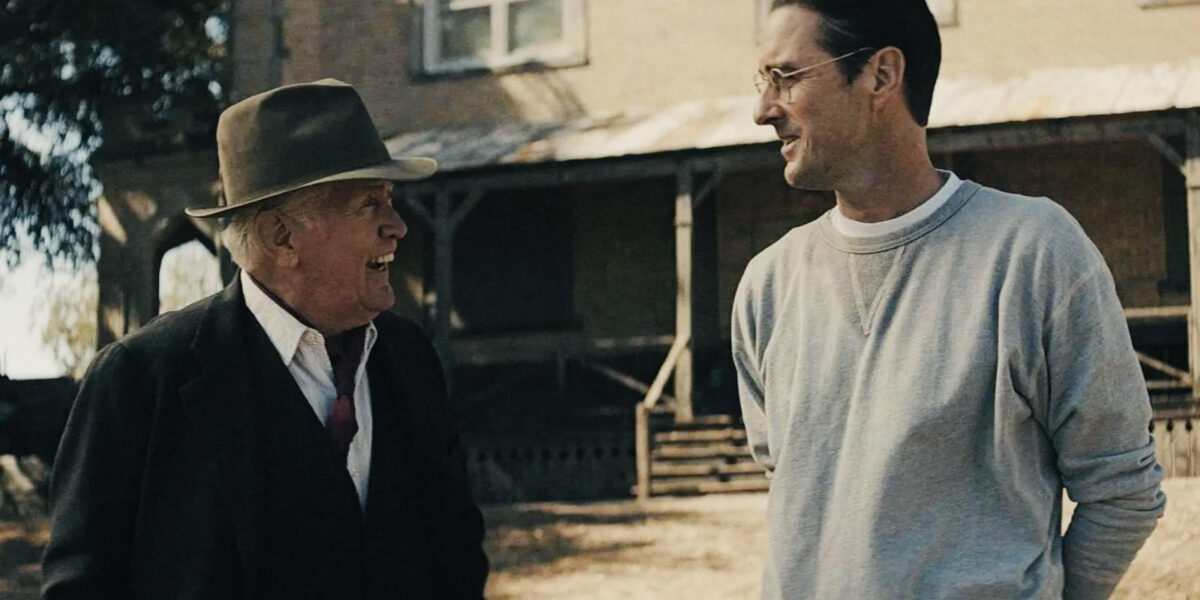Ty Roberts’ 12 Mighty Orphans, which opens in Canada on August 6, is an uplifting account of triumph over adversity. Inspired by true events, and taking place in Fort Worth, Texas, in 1938, it reaffirms the adage that a lot can be wrung from little.
A football coach arrives at an orphanage and, against all odds, proceeds to whip a bunch of troublesome boys into an awesome high school team that reaches the finals of the state championship.
It’s an amazing feat because orphans in 1930s Texas were stigmatized as outcasts and known as “inmates” and “motherless bastards.”
Yet Rusty Russell (Luke Wilson), the coach, instinctively understands these scrappy lads. An orphan himself, he’s a World War I veteran who was temporarily blinded on the battlefield and who knows the true meaning of courage, grit and perseverance.
The task that awaits him at the Masonic Home is so daunting that his wife seems bowled over by the challenge. “We just adopted 150 kids,” she says curtly in a reference to the number of orphans at the institution. But Russell’s self-confidence remains unshaken. “We can make a difference,” he says.
Objectively, the obstacles that lie ahead seem unsurmountable. Frank (Wayne Knight), the corrupt director of the orphanage, makes it crystal clear that the status quo is sacrosanct. “Nothing changes around here,” he says shortly after meeting Russell and his family.
He believes the boys on his team can learn self-respect, a quality in short supply on the premises. Frank regards Russell as an annoying interloper who will interfere with his unduly harsh disciplinary methods and play havoc with his reliance on the boys as a source of cheap labor in the in-house printing plant. “Every second they’re on the field we’re losing money,” he complains.
Russell forges ahead despite Frank’s opposition, but realizes he is fighting an uphill battle. None of the boys has ever played football. The practice field is in appalling condition. There is a glaring lack of equipment.

Russell has one big advantage, however. Hall (Martin Sheen), the much-liked and avuncular physician at the orphanage, has his back. Admiring his optimism and hands-on approach, Hall signs on as his assistant. Wilson and Sheen turn in remarkable performances as driven men united by a singular cause.
Believing that hard work leads to great beginnings, Russell whips his recruits into shape, only to discover that yet more challenges loom on the horizon.
On the eve of the Mighty Mites’ first game, Russell delivers a pep talk worthy of a coach of his caliber, urging the players to comport themselves with heart and conviction and stay focused.
As time goes on, Russell devises an original strategy to wear down competitors, and it works. The Mighty Mites cruise to a succession of victories, prompting Russell to say, “I look at you boys and I can say I’m proud to be an orphan.”
Despite their success, the Mighty Mites run into further problems, causing none other than the president of the United States, Franklin Roosevelt, to intervene on their behalf. To Roosevelt, they represent hope to downtrodden Americans frazzled and worn down by the deprivations of the Depression.
12 Mighty Orphans succeeds in distilling the temper of the times and in illustrating how Russell deftly shaped his boys into a cohesive team and quietly inspired them to overcome their disadvantages.
With the coronavirus pandemic still raging, it’s a film that will surely find an audience among tired and dispirited North Americans.
